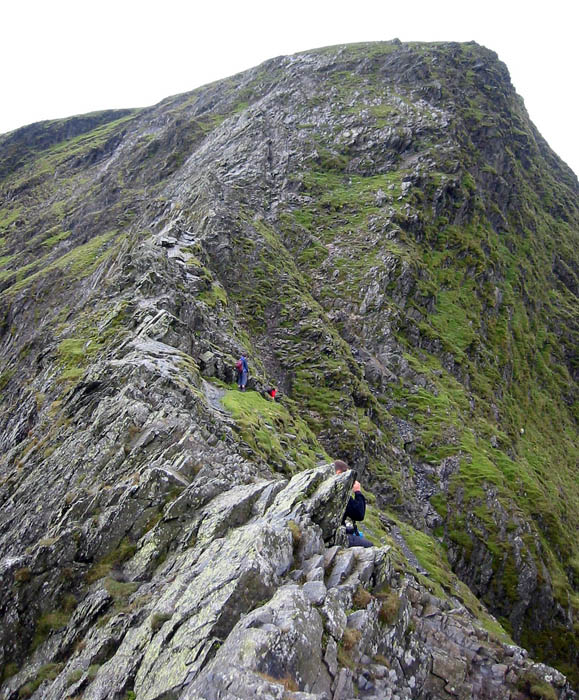 Lake District fellwalkers should not rely on their mobile phones to get themselves out of trouble.
Lake District fellwalkers should not rely on their mobile phones to get themselves out of trouble.
That’s the message from a rescue team who spent an hour searching for a walker on the wrong fell because of a poor phone message.
Right: Sharp Edge, scene of the original search
Keswick Mountain Rescue Team (MRT) received a 999 call for assistance about 1.30pm on Tuesday this week, but had no indication of the nature of the casualty’s injury or whereabouts because of a poor signal from the phone.
The team tried to estimate the walker’s location by triangulating the signal, working out it probably came from the Threlkeld area or Sharp Edge on nearby Blencathra. A group of rescuers was dispatched to search the area and the Great North Air Ambulance was called in to overfly Sharp Edge and see if any casualty was visible.
40 minutes later, a second call came in from a walker on Sergeant Man, more than 20km (13miles) from the search area to say the casualty was near him. He reported a man in pain with suspected groin strain. The air ambulance was then diverted to Sergeant Man, in the High Raise range, where it picked up the casualty who was taken to Carlisle Hospital with a suspected deep-vein thrombosis.
Rescuers say the experience shows the limits of reliance on mobile phones. Keswick MRT said: “Because there are lots of mountains in the Lake District, they tend to play havoc with mobile phone signals.
“Also, because of the low resident population of the area, there are not so many mobile phone aerials. This results in a very poor, haphazard service and any attempts at signal triangulation are usually unhelpful, as in this case.
“You can never rely on your mobile phone for help. If you do manage to get a connection, keep it live until the mountain rescue team has spoken to you.”